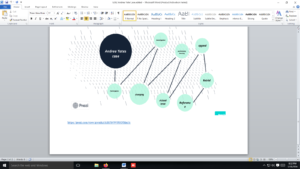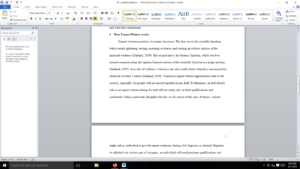Andrea Yate Case
Question Description: Overview: This activity will allow you to examine the roles and responsibilities of the participants in the judicial process, while utilizing a tool that is helpful to
administrators—a graphic organizer.
Prompt: Visit the Shapiro Library and choose an article about the Andrea Yates case. Create a graphic organizer that evaluates this case from arrest to trial,
identifying the different responsibilities of the participants in the judicial process. Include an examination of how the process works and self corrects when
necessary through appeals and retrial. This Inspiration Software guide will help you understand more about graphic organizers.
Specifically, the following critical elements must be addressed:
I. Responsibilities: Evaluate the Andrea Yates case from arrest to trial, identifying the different responsibilities of the participants in the judicial process.
II. Examination: Include an examination of how the process works and self corrects when necessary through appeals and retrial.
Answer previewhttps://prezi.com/view/gwmkz5EHJS4W00IOMm5i/[8 Words]

Andrea Yate Case


